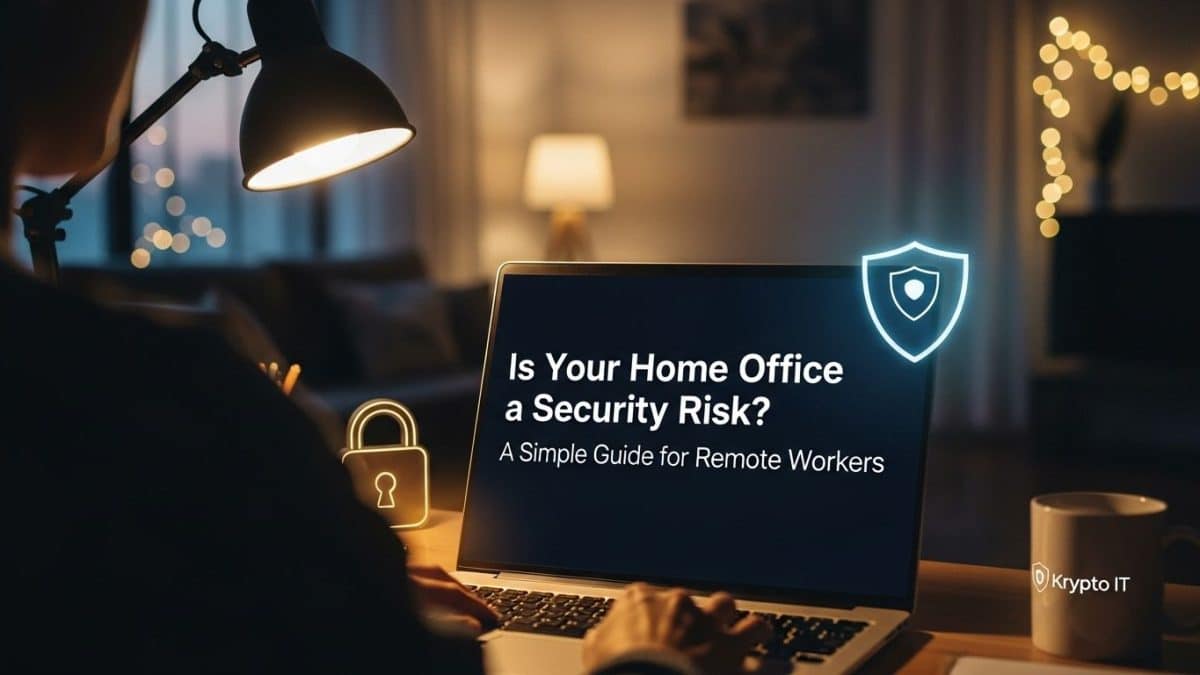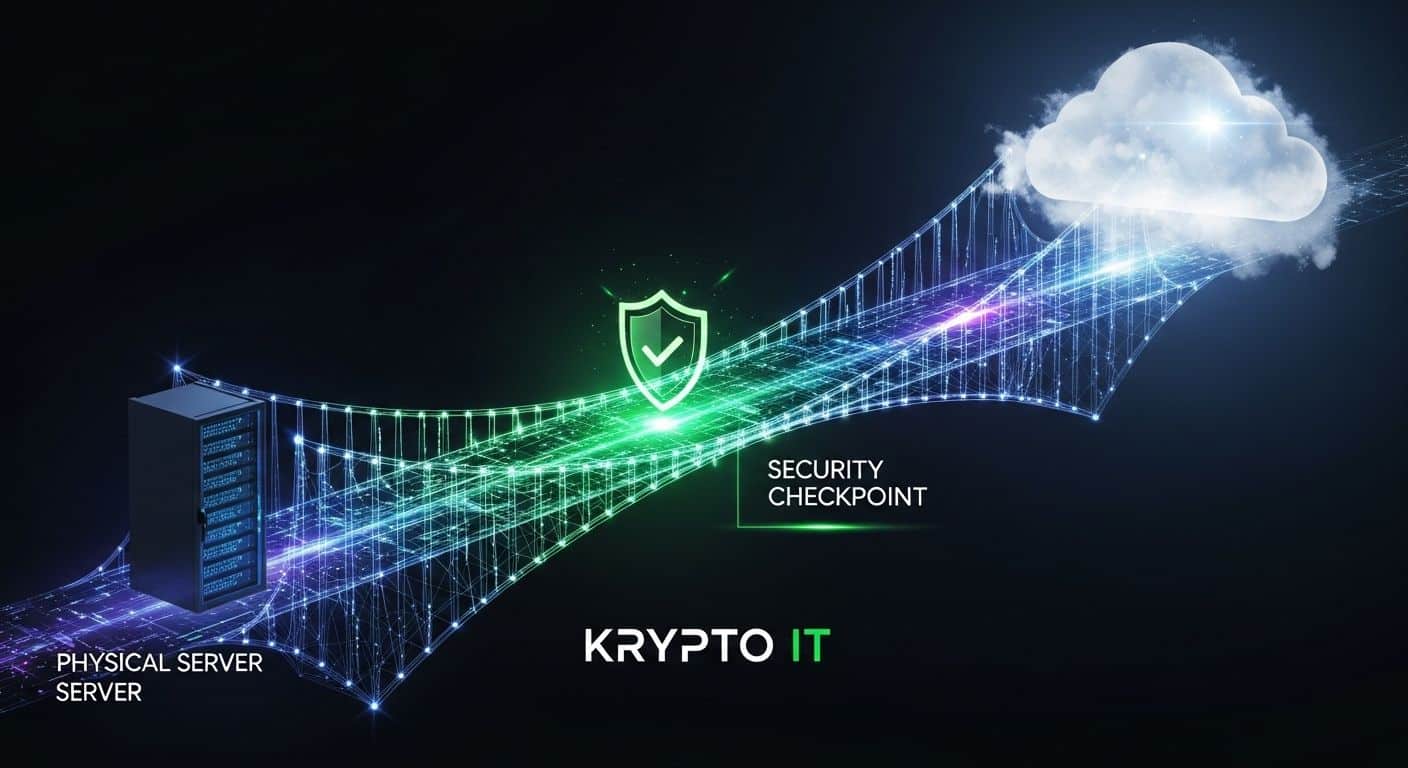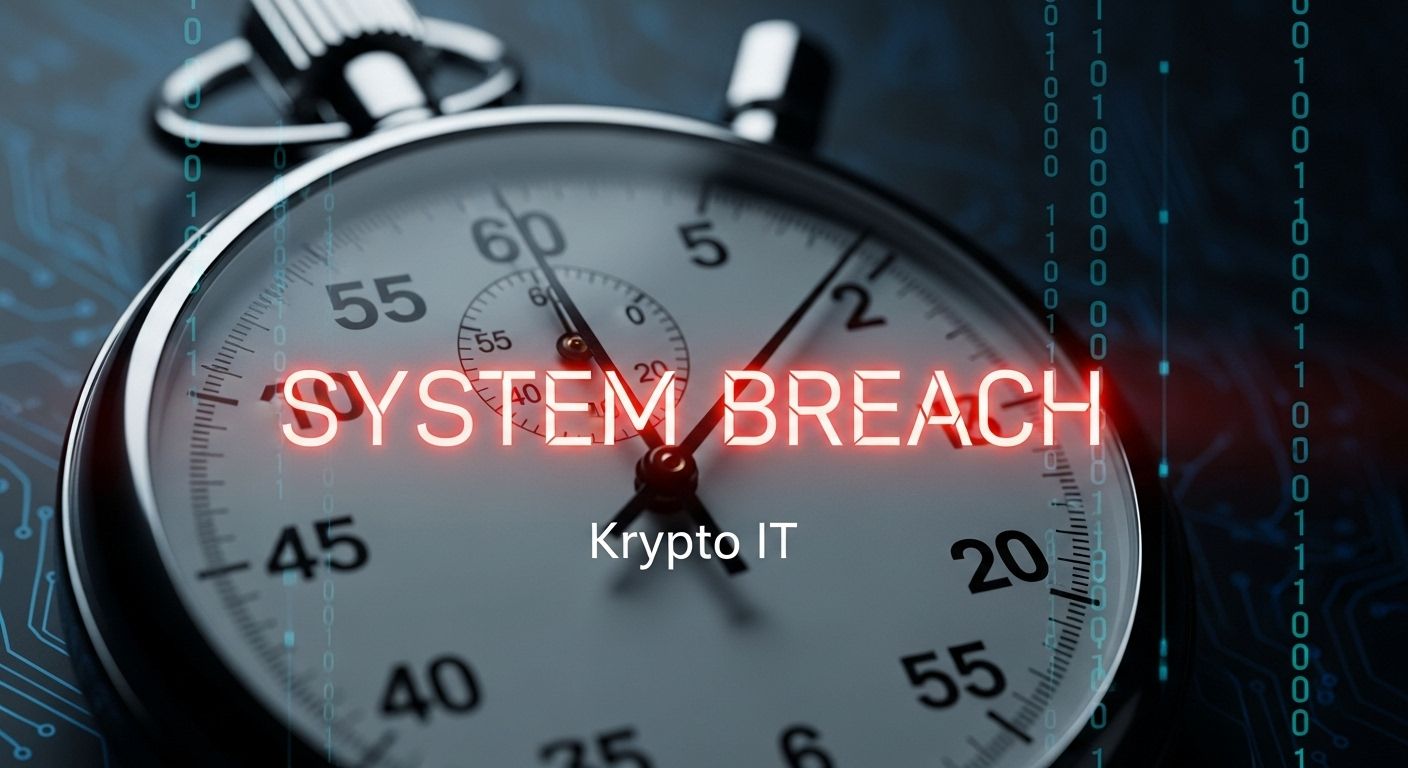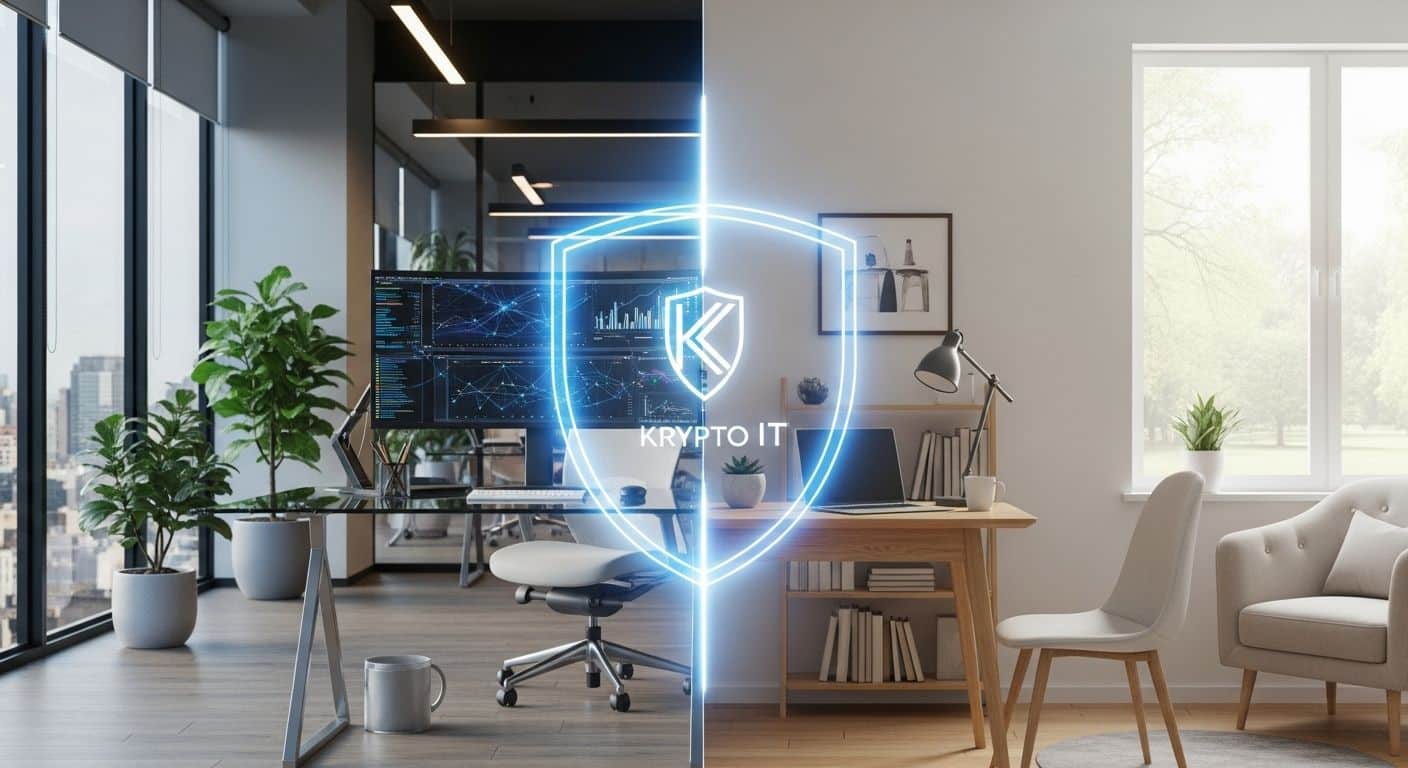
“My IT Guy Handles That” vs. a Proactive MSP Partnership: What’s the Difference?
October 11, 2025
The #1 Tool You Aren’t Using (But Should Be): A Case for Password Managers
October 13, 2025The modern workforce is flexible, but that flexibility comes with new cyber risks. For small to medium-sized businesses (SMBs) in Houston, the home office has become the new frontier of network security. While your main office network is protected by professional-grade firewalls and dedicated Krypto IT management, the security of a remote worker’s home setup often falls on them—and that can be a recipe for disaster.
The truth is, your home network was built for streaming movies, not defending against enterprise-level cyber threats. This creates a weak point that cybercriminals actively exploit.
Here is a simple, no-jargon guide for every remote employee on your team to understand why their home setup is a risk and how to immediately turn it into a secure extension of your business.
The Three Hidden Dangers of the Home Office
You might think that as long as your laptop has antivirus software, you’re safe. Unfortunately, professional hackers don’t target the laptop; they target the environment around it.
1. The Under-Secured Router (Your Weakest Link)
Your home router is the main entry point to your network, yet most people never change the default administrator password or update its firmware. A hacker can easily use default credentials to take control of the router, reroute your traffic to phishing sites, or even monitor everything you do.
2. The Public Wi-Fi Illusion (The Coffee Shop Trap)
While convenient, public Wi-Fi at coffee shops or airports is inherently insecure. It’s impossible to verify who else is on that network, making it simple for a nearby criminal to intercept data transmissions and steal login credentials or business documents.
3. The Shared Device Problem (Family Laptops)
When you use a work laptop for personal browsing, or when a family member occasionally uses it, the risk of downloading malware, clicking a phishing link, or visiting a compromised website skyrockets. Every personal device interacting with the work network is a potential vector for infection.
Simple Security Steps for Every Remote Employee
You don’t need to be a cybersecurity expert to dramatically improve your defense. These four simple steps are non-negotiable for remote work:
1. Secure Your Home Router
- Change Default Credentials: Immediately change the default Wi-Fi and administrator passwords on your router to a unique, strong passphrase.
- Keep it Updated: Regularly check your router manufacturer’s website for firmware updates. These updates patch critical security flaws that hackers exploit. If you are a Krypto IT client, we can help manage this for you through approved remote access tools.
- Use the Guest Network: If you have guests, always give them access to the router’s segregated guest network, keeping your work network isolated.
2. Master the VPN
When working remotely, especially on public Wi-Fi, you must use a Virtual Private Network (VPN). A VPN encrypts all data leaving your device, creating a private tunnel over the public network. Even if a hacker intercepts your data, it will be unreadable. Krypto IT ensures all managed work devices utilize a secure, company-approved VPN for all remote connections. Never connect to a corporate resource without it.
3. Separate Work and Personal Life
The simplest way to reduce risk is through isolation.
- Dedicated Devices: Use your work laptop exclusively for business tasks. Do not install personal software, apps, or games on it.
- Strong Passwords (MFA): Use Multi-Factor Authentication (MFA) on every single account. If a hacker steals your password, MFA ensures they still cannot access your data.
4. Know the Phishing Signs
Human error remains the number one cause of security breaches. Every employee must assume that every email, text, or phone call could be a social engineering attack.
- Pause and Check: Hover your mouse over any link before clicking to see the true destination URL.
- Verify Unexpected Requests: If you receive an urgent request for credentials or money from a manager, always verify it through a second channel (like a direct phone call, not by replying to the suspicious email).
Turn the Risk into Resilience with Krypto IT
For SMBs, relying solely on employee awareness is a risk too big to take. A secure remote work environment requires centralized management, constant monitoring, and rapid incident response—services a single employee simply cannot provide.
Krypto IT specializes in managing the complexities of a dispersed workforce. We ensure every work device is properly secured, every connection is routed through a monitored VPN, and critical data is protected, regardless of where your team is working.
Are your remote workers your strongest defense or your biggest risk?
Take the Next Step
Don’t leave the security of your business up to residential Wi-Fi and luck. Talk to a Krypto IT expert in Houston today about securing your remote infrastructure and creating a robust, enterprise-grade security policy for your entire team.
Contact Krypto IT today for a free assessment of your remote work setup!




